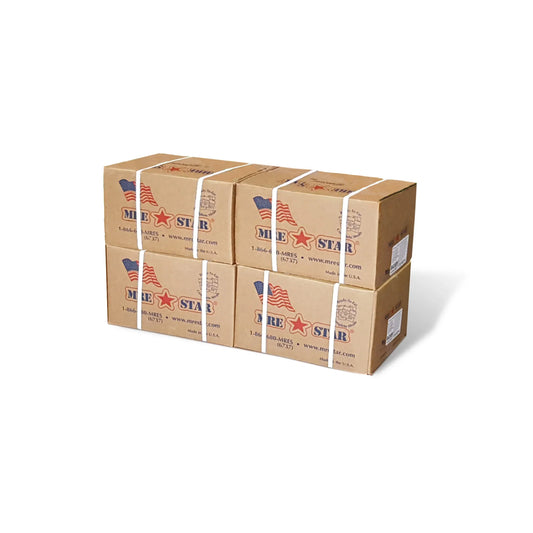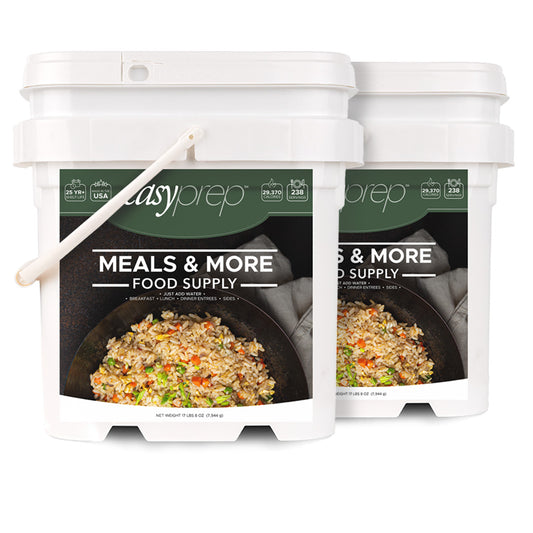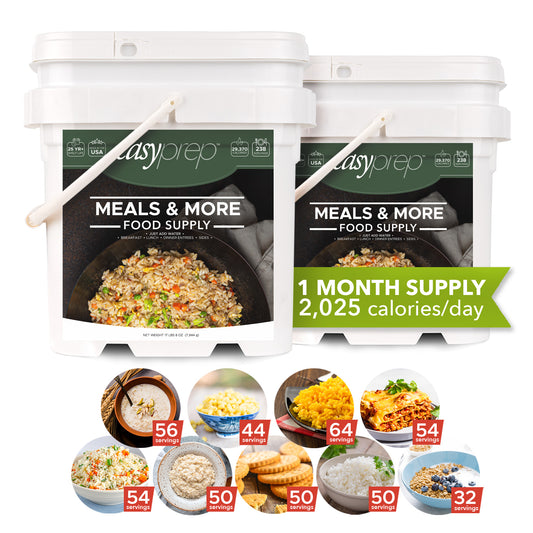5 Reasons Why People Don't Prepare
When you hear about the reasons why others are “preparing for an emergency” or “thinking ahead”, it makes perfect sense. But when someone gives you an excuse for why they are not taking extra precautions, is there any logic behind it? Today, we will be exploring the 5 excuses people make with not preparing for an emergency. Most emergency situations, like a natural disaster or civil unrest, happen with little to no notice. The people who give this excuse may have every reason to believe that their city is immune from an unfortunate event. However, we believe that it is important to be smart and plan for the unknown. Even if that means having a simple 72-hour kit at the office or in your car, it’s always good to have a “just in case” plan.
5- I can gather what I need from what I already have
Yes, you probably have flashlights, granola bars, and water bottles. You may even have an empty backpack to throw it all in. However, you never know how much prep time you'll have to gather and go. Even more, if you do have time to throw everything together, you cannot assume that batteries will be fresh, you'll have enough ready-to-eat food on hand, etc.
4 – Even if it does happen here, it won’t happen to me
The likelihood of being affected by an emergency situation is relatively low. We live in an era where technology can alert us when we may be at risk for earthquakes, floods, hurricanes, and tornadoes. However, it’s hard to foresee when other events may occur.
“Preparation through education is less costly than learning through tragedy.” - Max Mayfield, Director National Hurricane Center
3 – Even if it does happen to me, it won’t be that bad
We spend a good part of our time assessing risk. In the human experience, we are forced to determine whether something or someone poses a danger to our life and safety. It is so innate that many times we don’t even realize we are doing it. We are making risk assessments all the time such as “Do I have time to turn before the car hits me?”, “Will my kid hurt himself if he jumps on the trampoline”, “Is that too hot to pick up?” Fear is our intuitive assessment of the risk we face. Risk = (probability of event occurring) x (impact of event occurring) Like I said, fear is our intuitive mechanism to assess risk. On a daily basis, we experience both rational and irrational fear. Because fear is an unpleasant emotion we try to mitigate it by telling ourselves not to worry or be afraid. But, the better we are at assessing real risk and danger, the safer we will be. An improper risk assessment will cause us to make decisions that could put us in greater danger.
2 - Even if it is that bad, then I can get emergency supplies anytime.
There is no guarantee that you’ll have access to emergency supplies at any time. Depending on the type of crisis, most stores may be shut down or completely wiped out. Emergency preparedness, when done correctly, should be a part of your everyday lifestyle. If your budget allows it, buy a few extra cans of food or gradually save for 3 - 4 weeks’ worth of food storage. Making small changes will make a world of difference when you need it most.
1 - Even if I can’t get emergency supplies, then the government will save me.

In some extreme cases, it could take the government anywhere from 3 – 7 days to get to you. 72-hour kits were designed with the intention of helping you get through the first few days of a disaster. The reality is, it could mean the difference between life and death if not prepared correctly.An advantage of working in the emergency preparedness industry is that we are able to see how people react to specific disasters around the world. People react differently, depending on how close to home the disaster feels. The terrible tsunami in the Indian Ocean on Dec. 26, 2004 was a disaster of catastrophic proportions. Over 300,000 people were killed and millions more directly impacted. While there was a great outpouring of concern, very few people took the message to heart and got prepared. Then the next year, Hurricane Katrina occurred with relatively minor flooding and loss of life compared to the tsunami. All of sudden, people all over the country wanted to get prepared.
What changed?
People realized the logical misconception of the 5 excuses. This can happen here. It can happen to me. It will be that bad. I can’t buy emergency supplies after the disaster has struck and worst of all, no, the government cannot save you. This was an eye-opening experience for the whole country.













